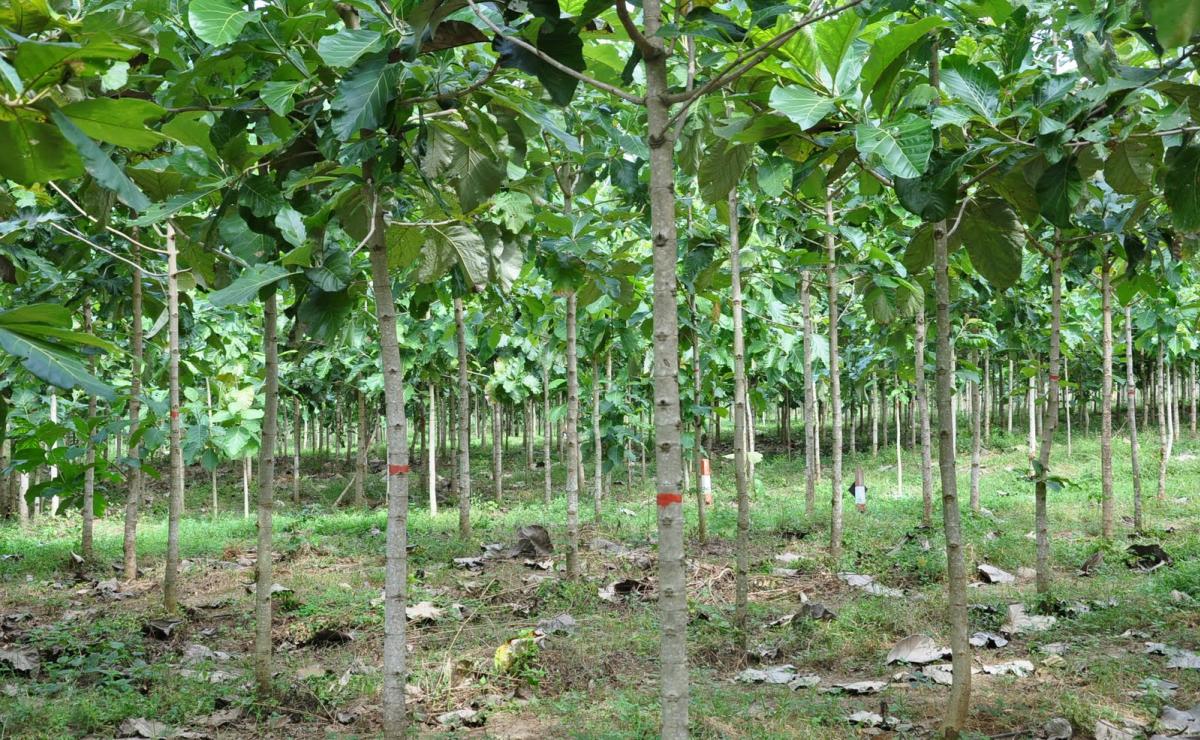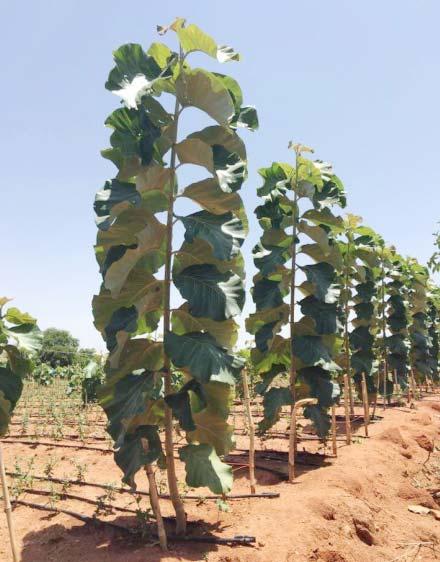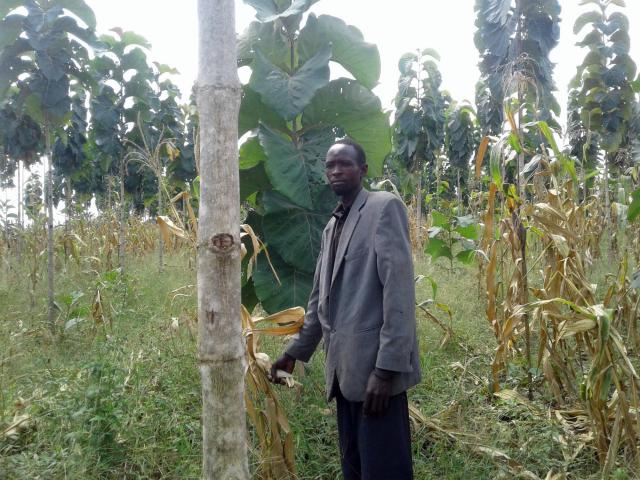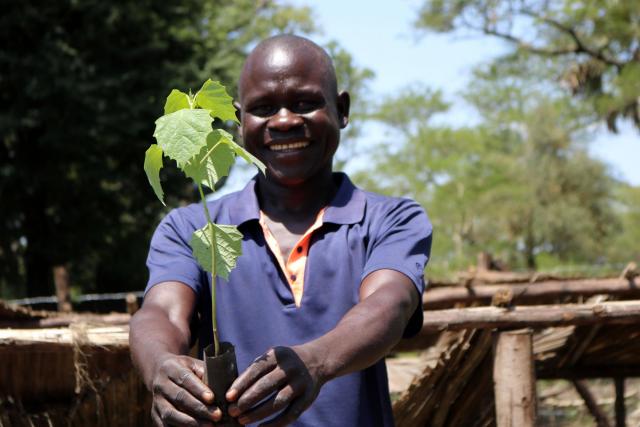Conserving the environment through tree planting

There is struggle for land for different activities such as cultivation, shelter, livestock among others. The influx of refugees in the hosting communities added on the already high pressure on land. The scramble for land to accommodate the different activities exerts pressure on forests and natural resources and has often led to deforestation.
The high demand for timber and fuel wood exacerbates deforestation. Deforestation results in a number of calamities including soil degradation, food insecurity resulting from prolonged draught, climate change and loss of biodiversity.
The Lutheran World Federation(LWF) with funding from the European Union and Church of Sweden is implementing environment conservation projects, and strengthening ecofriendly livelihood activities in Northern Uganda. The projects promote environmental conservation activities such as tree planting, tree marking to prevent careless tree cutting, communal environmental sensitizations, advocating for environment conservation bylaws and influencing and promoting the use of solar energy and ecofriendly stoves by the targeted communities.
LWF promotes Environmental conservation initiatives in both refugees and host communities. “We offer refugees, and host communities including school children tree seedlings to plant so that they replace the greenery that is destroyed while they are settling in.” Odong Sunday, Teko-Wa Project Officer.

How do trees facilitate environmental conservation?
Odong explains that tree planting is vital in environmental conservation since trees play various roles like; preventing the accumulation of greenhouse gases in the atmosphere, cleaning the air by absorbing pollutant gasses, and supplying oxygen to all living creatures hence sustaining life on earth. He continues to say that trees stabilize the soil and prevent erosion, they break the intensity of wind hence protecting both the built and natural environment from destruction.
“Trees create habitats for wildlife, they protect watersheds from erosion and eutrophication through stabilizing the upstream areas. Trees emit vapor which is responsible for forming rainfall.” Adds Joyce Adokorach an Agroforestry professional working with LWF.

Tree planting for income
Not only is tree planting good for conservation of the environment, but plays a vital role in improving livelihoods too. For 37-year-old George Abwola tree farming is his major source of livelihood. Abwola who was supported by LWF with tree seedlings, owns 3 hectares of teak tree woodlots in Lamwo district which were planted in 2016.
Currently, they are worth millions. “I have received four potential buyers, each offering over UGX 50,000,000 for my woodlots.” Says Abwola who further explains that he hasn’t sold the trees yet because their value increases each passing day. “I intend to sell them in 2040. When they are 25 years old so that I can earn as much as UGX 800 million.”
Stephen Kilama from Palabek Gem Sub County in Lamwo district was also supported by LWF with tree seedlings. He has reaped big from tree farming. “In 2017, when Palabek refugee settlement was being opened, I fetched UGX 80,000,000 from my 5-year-old eucalyptus woodlot when I sold 5,000 eucalyptus poles for construction” narrates Stephen. I have used the money to build my residential house and start up a hardware business”

In agroforestry, where trees are inter-planted with other crops, increase in yield of the crops is observed. This is mostly due to the fact that some trees fix nutrients into the soil, help is retaining soil moisture, prevent erosion of soil nutrients and also help in rainfall formation. “Intercropping trees with other types of crops fetches good results for not only the trees but food crops too if appropriate tree spacing is observed.” Says Adokorach.
Abwola recalls fetching 32 bags of ground-nuts and 26 bags of maize from the plants he planted in his woodlot in 2017. This is unlike 2016 when he harvested only 17 bags of ground-nuts and 8 bags of maize after his food crop garden was affected by a prolonged dry spell. “Trees have so many times protected my food crops from floods and too much heat during dry spells.”Adds Abwola.
Abwola is one of over 3,000 beneficiaries who received training, tree seedlings, support in woodlot establishment and management by LWF. Over 2,700 hectares of woodlots have been established by the beneficiaries under the Teko Wa project being implemented in Uganda’s Northern region in the Districts of Kitgum, Lamwo, Pader and Agago.
The project funded by the European Union and Church of Sweden is aimed at environmental conservation to prevent and counter the effects of climate change.

